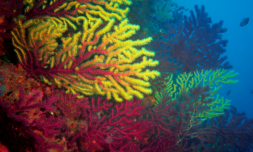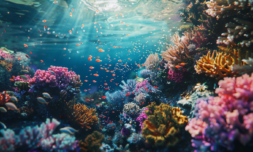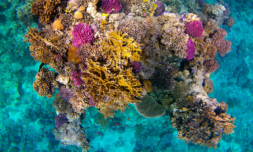‘Just when we think there is nothing left to discover on planet Earth, we find this massive coral made of nearly one billion little polyps, pulsing with life and colour,’ said Enric Sala, conservationist and founder of the Pristine Seas initiative.
Surprisingly, the mega coral was unknown to local communities in the Solomon Islands, despite being located just below the surface of the island’s warm, biodiversity-rich waters.
At first glance, scientists said it appeared as an ordinary rock formation, potentially even an undiscovered shipwreck. It was only after a member of the research team dived closer that the true nature of the structure was realised.
The Solomon Islands boast one of the world’s richest marine ecosystems, with over 500 species of hard and soft corals.
Their waters make up part of the Coral Triangle, often referred to as the ‘Amazon of the ocean,’ due to its unmatched level of marine biodiversity.
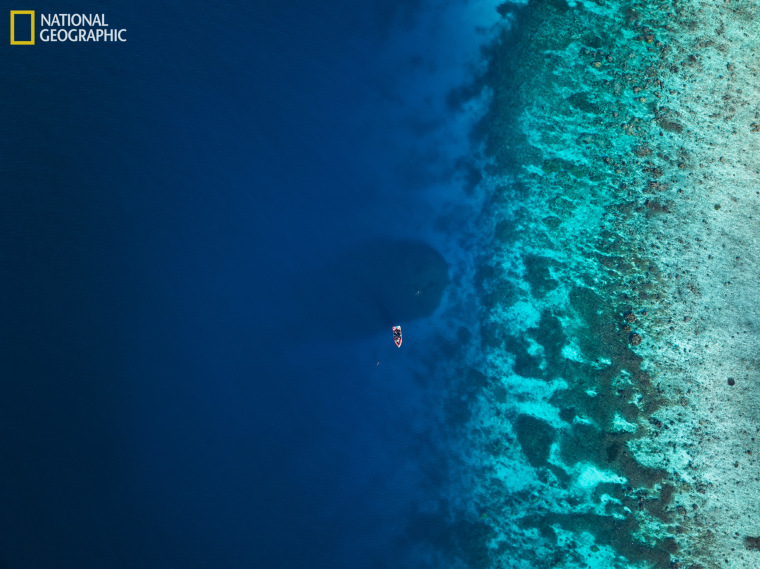
Researchers believe the mega coral’s layers could provide a chronological record of oceanic conditions over the past three centuries.
This includes gathering information on historical sea temperatures, pollution levels, and other environmental changes.
‘It’s a natural monument that has seen the arrival of the first Europeans to these waters,’ said diver and researcher San Félix, who first identified the coral.
He continued, ‘Newton, Darwin, Curie, Gandhi, Einstein – they all lived in its time. And it has outlived them.’
Eric Brown, a coral scientist on the expedition, emphasised the coral’s ecological significance. ‘Large adult colonies like this play a vital role in the recovery of coral reef ecosystems.’
Brown continued, ‘Their high reproductive potential helps restore damaged reefs, providing hope even as global warming continues to degrade shallow reef systems.’
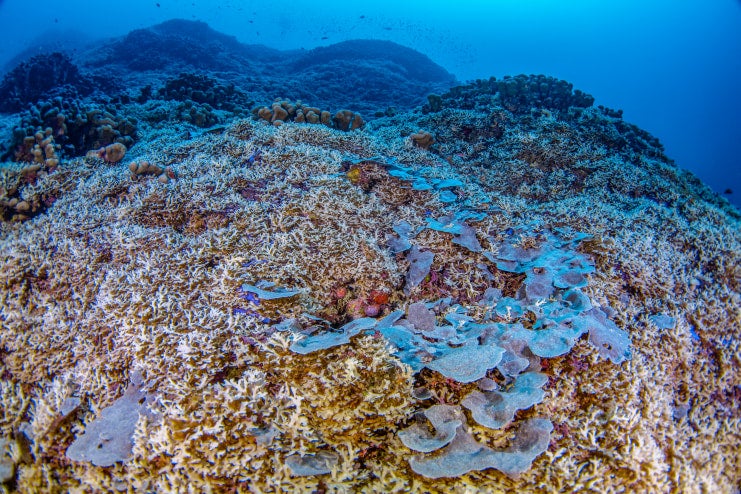
While the mega coral has thrived in slightly deeper waters, offering some refuge from rising sea temperatures, it is not immune to human threats.
Warming seas, acidification, and pollution all pose serious threats to coral even in remote locations. Currently, only 8.4 percent of the world’s oceans are protected, a figure that’s too low to safeguard ecosystems as fragile and vital as this one.
The Pristine Seas team hopes their discovery will bolster conservation efforts in the Solomon Islands and beyond.
Their expedition combines advanced technology and traditional knowledge to document marine ecosystems, highlighting the need for expanded marine protections.
‘The genetic code of these polyps is an enormous encyclopedia,’ said San Félix. ‘It holds the secrets of survival through centuries of climatic shifts. Whether it can survive the challenges of the modern era is up to us.’
For now, scientists and conservationists around the world will celebrate the find.
But as the novelty wears off, a primary lesson will emerge: the ocean holds undiscovered wonders that can inspire and educate humanity in the future – if only we act to preserve and protect them.










